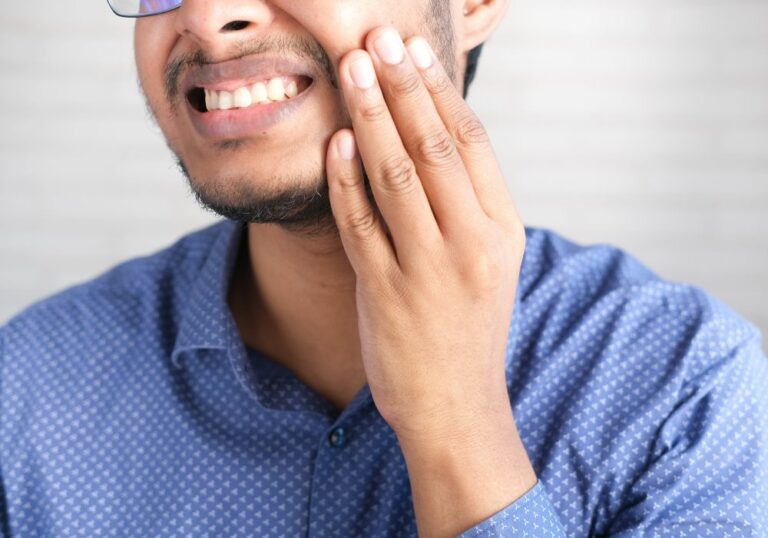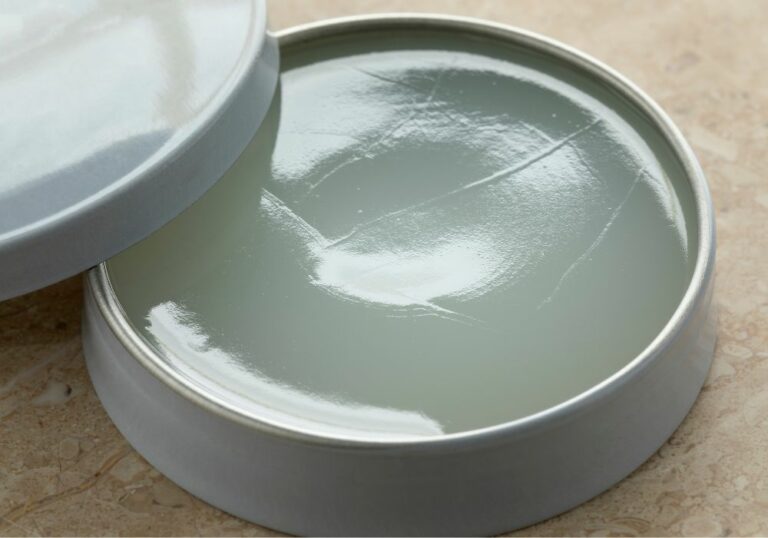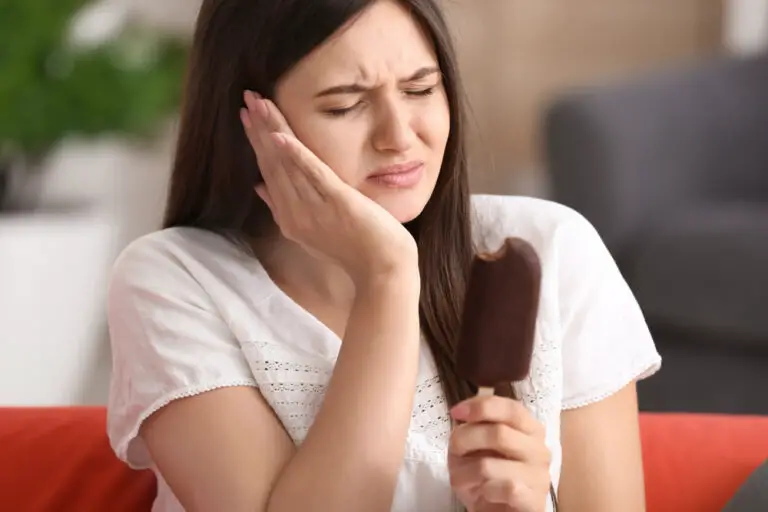A sudden toothache can be alarming and debilitating. Understanding the common causes, obtaining prompt diagnosis, and pursuing effective treatment are key to relieving pain and restoring oral health.
What causes sudden toothache?
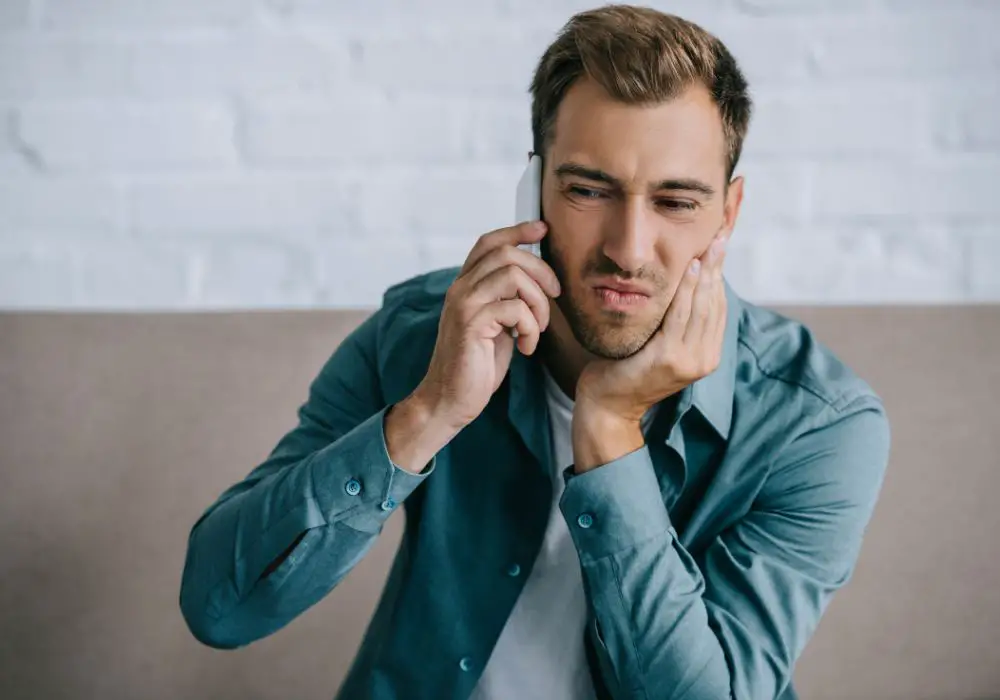
A variety of dental problems can trigger acute pain in teeth when there were no prior symptoms.
Dental caries
Tooth decay, also known as dental caries, is a leading cause of toothache. Caries develop as acids from plaque bacteria erode through enamel and dentin. This decay process can quietly undermine tooth structure over months to years before provoking any pain. However, once decay reaches the inner pulp chamber and exposes nerve tissue, moderate to severe pain can begin abruptly.
Dental caries often cause the following patterns of pain due to inflammation in the tooth pulp:
- Pain when eating hot, cold, sweet, or acidic foods. Temperature changes provoke swelling of inflamed pulp tissue while sweets irritate exposed dentin tubules.
- Pain when lying down as pulpal blood flow increases, raising intra-pulpal pressure against rigid dentin walls.
- Lingering pain after a stimulus is removed as the inflamed nerve endings remain irritated.
- Erratic pain that comes and goes as pulp inflammation fluctuates.
Dental abscess
A dental abscess involves a pocket of pus forming at the root tip when a severe infection develops, usually due to advanced tooth decay. Abscess formation increases pressure on the tooth root, compressing the pulp tissue. This causes moderate to severe, constant throbbing or pounding pain.
Abscess pain tends to worsen when lying down as the fluid collection exerts greater pressure on the tooth root in this position. The pain may radiate to other teeth or cause generalized facial swelling.
Cracked tooth
A cracked or fractured tooth can cause sudden pain when chewing by allowing debris and bacteria to enter the inner dentin tubules. This stimulates the nerve fibers, provoking brief but intense pain when the crack is compressed together between the upper and lower teeth.
However, cracks can also harbor bacteria that inflame the underlying pulp over time. In these cases, pain may arise spontaneously as the crack expands and the pulp becomes irreversibly inflamed.
Dental injury
Trauma to a tooth during an accident or sports injury can cause immediate pain by severely damaging the inner pulp. But pain from trauma may also take time to develop.
The initial impact can fracture the enamel and dentin layers without immediately affecting the pulp. Over days to weeks, the damaged pulp tissue can become irritated and inflamed as bacteria start to invade. This leads to delayed onset of spontaneous toothache.
When does a toothache require emergency dental treatment?
While many toothaches can wait for regular dental office hours, prompt emergency care is warranted if the pain is:
- Severe and constant, preventing sleep and normal function
- Accompanied by facial swelling, fever, chills or difficulty swallowing
- Caused by extensive tooth damage or tooth loss from trauma
- Associated with profuse oral bleeding that doesn’t stop
These scenarios indicate a serious underlying problem like a severe infection or pulp exposure needing urgent attention to prevent complications. Otherwise, conditions will worsen.
How dentists diagnose the cause of sudden tooth pain
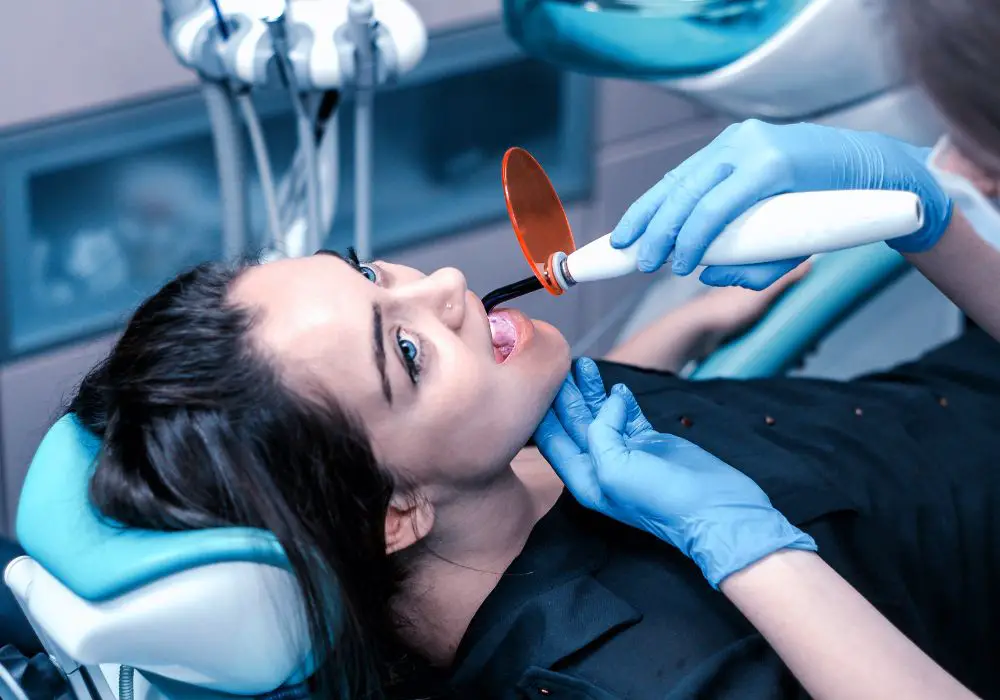
Identifying the specific reason for acute tooth pain allows appropriate treatment. Diagnosis involves:
- Clinical examination – Visually inspecting teeth, gums, and other oral tissues. Dentists check for visual signs like cavities, cracks, gum infection, swelling, or trauma. They also assess tooth mobility and function.
- Patient history – Asking about pain duration, triggers, nature of onset, and past dental problems helps guide the diagnosis.
- X-rays – Intraoral bitewing, periapical or panoramic x-rays show decay, bone loss, infection, cracks, cysts, or other issues below the surface.
- Cold sensitivity testing – Applying cold stimuli like an ice stick or cold air stream reproduces pain in teeth with pulpitis inflammation.
- Percussion testing – Tapping lightly on a tooth with an instrument to test for pain from abscesses, fractures, etc.
- Probing – Using a thin instrument to assess tooth structure, pocket depths, and soft areas indicating infection.
- Pulp vitality testing – Monitoring nerve response after applying hot, cold, or electric pulp stimulation. Results determine pulp health.
- Additional imaging – CBCT scans provide 3D views. MRI helps identify soft tissue disorders.
Once the diagnosis is established, appropriate treatment begins.
Common treatments for sudden toothache
Managing sudden toothache involves directly treating the cause and providing symptomatic relief. Treatment options depend on the diagnosis but often include:
Fillings
For decay confined to enamel and outer dentin, removing the diseased sections and filling the cavity with composite resin or amalgam stops pain. The goal is to prevent bacterial irritation of the pulp.
Root canal
This removes inflamed or infected pulp and seals the inner canals. It’s done for reversible pulpitis, pulp necrosis, or severe tooth infection. Removing the diseased pulp tissue relieves pain.
Medications
Antibiotics like penicillin or clindamycin combat bacterial infections. Pain relievers like ibuprofen help reduce inflammation. These provide short-term relief before definitive treatment.
Crown or cap
If decay is extensive, a filling may not be enough. A crown provides full coverage protection to what remains of the damaged tooth.
Tooth extraction
Removing the entire tooth may be necessary for severe infection, extensive decay, or severe cracks/fractures. This completely resolves the diseased tooth’s pain.
Dental splint
Splinting stabilizes mobile, fractured or cracked teeth to control pain before restoration or extraction.
Regular dental visits for prevention and early intervention can help avoid progression to serious tooth problems and acute pain.
Temporary pain relief remedies for toothache

While home remedies cannot resolve the underlying cause of sudden tooth pain, several options may provide temporary symptom relief:
- Cold compresses applied externally over the painful area can reduce inflammation.
- Salt water rinses can soothe tissues and draw out swelling. Dissolve 1/2 tsp salt in a cup of warm water.
- Over-the-counter painkillers like ibuprofen, naproxen or acetaminophen taken as directed act on nerve pain signals.
- Topical clove oil contains eugenol with numbing properties. Apply a small amount to a cotton ball and gently press on the tooth.
- Chewing fresh guava leaves releases pain-blocking compounds.
- Crushed garlic contains allicin and other compounds with antibacterial and anti-inflammatory effects to inhibit infection and reduce swelling.
Such remedies provide only short-term relief until professional dental treatment. Don’t delay the necessary dental care.
Preventing sudden toothache
While sudden toothaches aren’t always avoidable, practicing consistent prevention helps lower your risk:
- Brush properly twice daily with a fluoride toothpaste and floss once daily to reduce plaque.
- Limit sugary or acidic food and drink intake to avoid enamel erosion.
- Avoid chewing hard items that can damage tooth structure.
- Wear a mouthguard during contact sports to prevent trauma.
- See your dentist every 6 months for cleanings, x-rays, and oral exam to detect issues early.
- Don’t delay treatment if you notice any concerns like tooth sensitivity.
Addressing problems in the early stages prevents progression to severe infection and nerve damage that can cause sudden, severe tooth pain. Maintaining diligent oral hygiene and regular dental care remains key to keeping your smile healthy and pain-free.
Frequently Asked Questions
Why does my tooth hurt more when I lie down?
Lying down allows increased fluid accumulation and swelling around the tooth root from an infection or abscess. The pressure on the nerve tissue provokes worse pain.
Why do my teeth hurt when I eat or drink cold things?
Temperature sensitivity indicates dental decay has reached the inner dentin layer and is irritating the tooth pulp. Urgent dental care is needed.
My tooth hurts when I bite down but not otherwise – what does this mean?
Pain while chewing that stops afterward suggests a cracked tooth. The crack is compressing the pulp tissue and nerve fibers. Eventually bacteria can enter causing pulp infection.
What causes throbbing tooth pain that keeps me awake?
Severe throbbing indicates advanced pulp inflammation and infection putting pressure on the rigid dentin walls. This level of constant pain is a dental emergency needing immediate attention.
I was hit in the mouth playing sports. Now my tooth hurts – what should I do?
Dental trauma can damage the pulp tissue immediately or in a delayed fashion as inflammation sets in. Regardless, have any teeth that hurt following an injury examined and treated promptly to prevent long-term complications.
Why does tooth pain come and go?
Intermittent pain often occurs with reversible pulpitis as inflammation flares up then settles back down. Cavities irritate the pulp but don’t cause irreversible damage initially. However, the decay needs urgent treatment to prevent the pulpitis worsening.
Summary
A sudden toothache almost always indicates encroaching problems like dental caries, cracks, infection, or trauma affecting inner tooth structures. While home remedies may temporarily reduce pain, seeking prompt professional diagnosis and treatment remains critical to relieve symptoms and resolve the underlying oral health issue before it worsens. With preventive self-care and regular dental visits, sudden toothaches can often be avoided.

